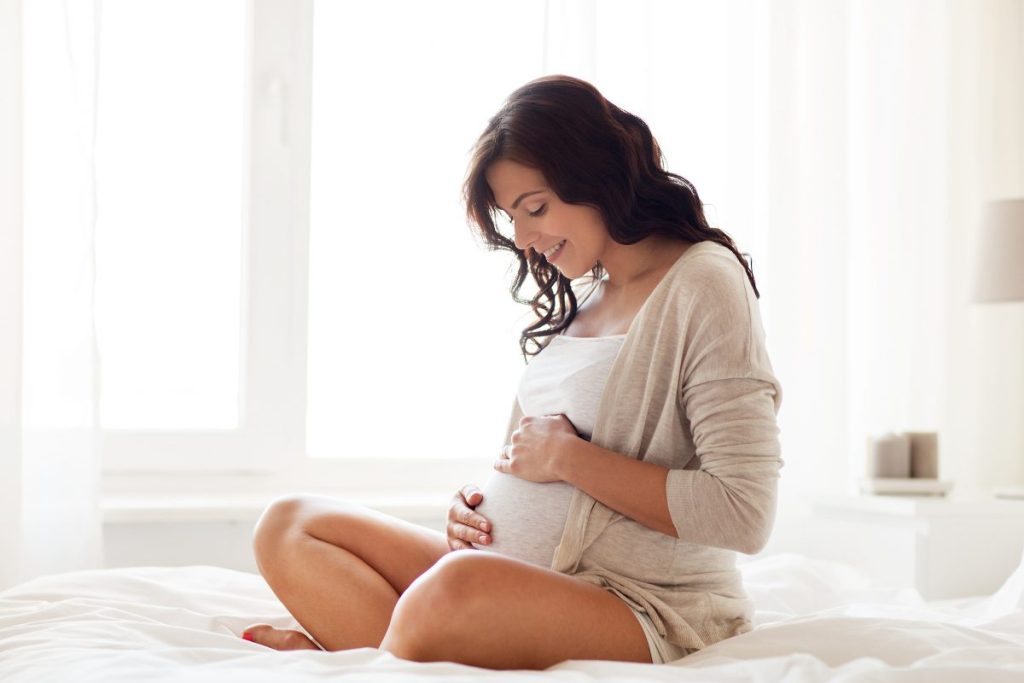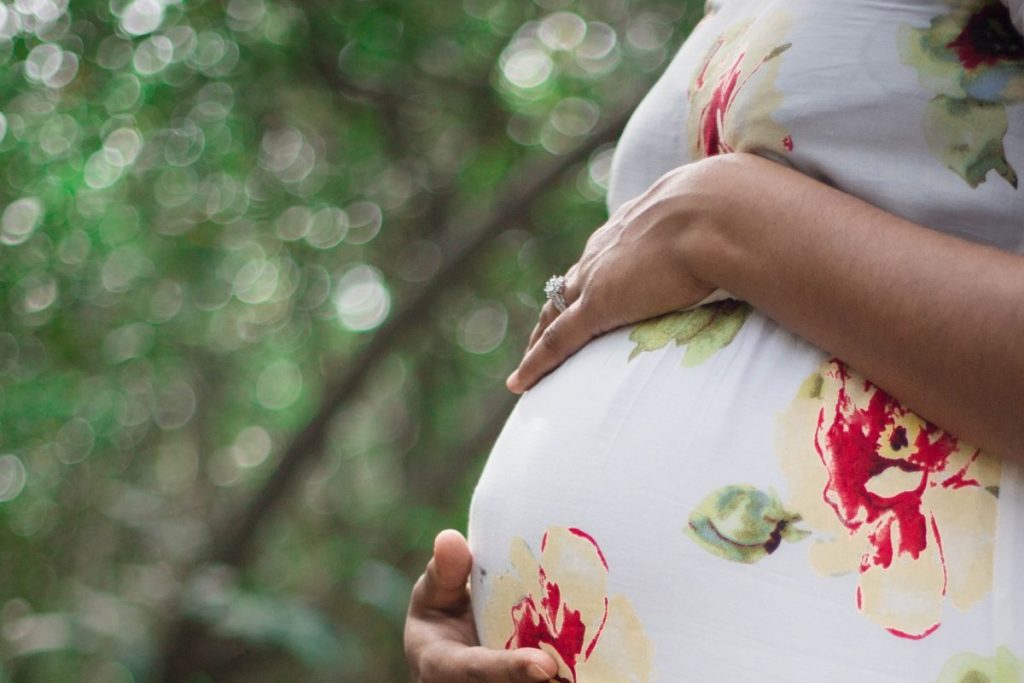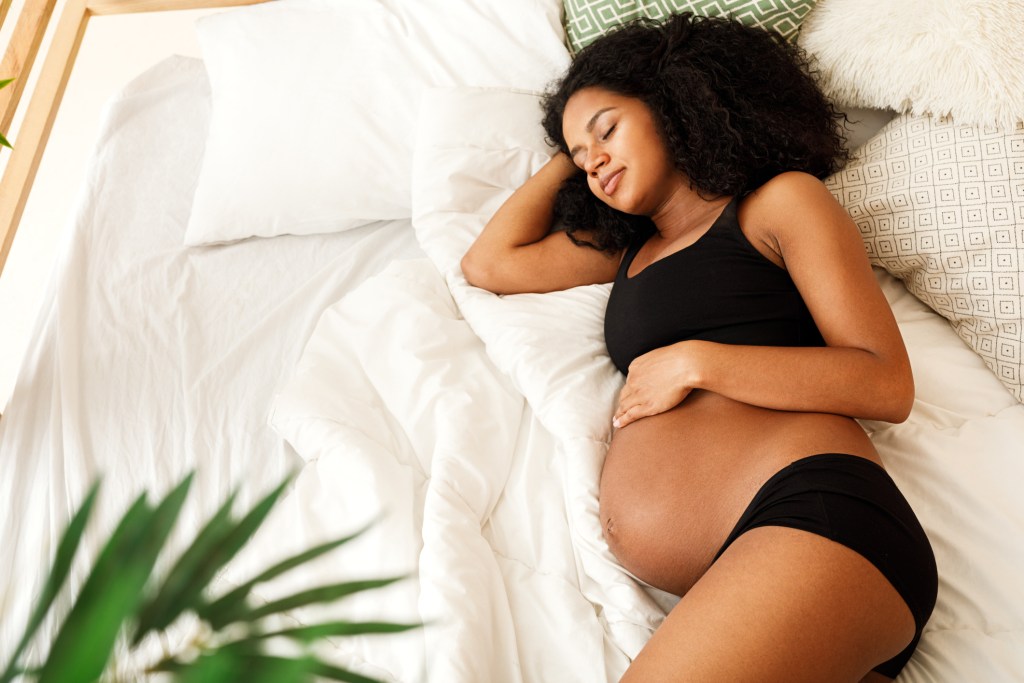
There’s nothing quite like feeling your baby move. It’s a reminder that there’s a human growing and thriving inside you. As the pregnancy progresses, those tiny flutters you feel during the second trimester turn into harder kicks and more frequent movements as they grow bigger, often resulting in what feels like the baby kicking your bladder constantly.
In the later stages of pregnancy, it’s not uncommon to not only feel but see the baby kicking or moving around as they grow. But for some women — particularly first-time moms — those movements can sometimes cause concerns. Pregnancy is full of questions and worries, and it’s easy to read into every little fetal movement, particularly as the due date draws near.
The location of your baby’s kicks, how hard they’re kicking, and how often your baby kicks is something most expectant people find themselves tracking to ensure their baby is healthy. Fortunately, the location of your baby’s kick isn’t generally a sign of concern. So, no, you shouldn’t worry if your baby is kicking low or if your baby is kicking your bladder. To help you decipher fetal movement and put your mind at ease, we spoke with Dr. Tamika Cross, a Texas-based OBGYN.

Common locations to feel a baby kick
It’s normal to feel your baby kick throughout your abdomen, especially early during the second trimester.
“It depends on the way the baby is laying,” said Cross.
They do somersaults in your belly, particularly earlier in the pregnancy, when they have more room to move. As amazing as it is to feel your pregnant belly move, there are a couple of places many moms wish their little ones would avoid.
“One of the most uncomfortable places is higher up in the ribs area or when the baby is very low kicking down toward where the maternal bladder is, sometimes forcing out a little urine,” continued Cross.
As frustrating as this can be, there’s, fortunately, nothing to worry about if they’re sitting pretty in these spots.

If you’re feeling your baby low, is it breech? Is the baby coming?
The answer to both of these questions is no.
“The baby is moving a million times in there,” Cook said. “You may feel a kick in one area and think it’s a kick, but it’s an elbow. You think it’s a kick, and it’s really the knee twisting.”
Cook says if you’re concerned, you should call your doctor. They can look into your concerns and put your mind at ease.

How the placenta affects fetal movement and what you’re feeling
Moms often feel their baby between 16 and 25 weeks of pregnancy. First-time moms may feel baby later because it’s hard to decipher those first flutters from gas in the early weeks. But there’s another thing that may affect when someone feels fetal movement, regardless of what number of pregnancies this is: Placenta placement.
“If the placenta is anterior, it’s on the abdominal wall, the part of the abdomen you can touch and feel. So there’s an additional layer so it can be hard to feel the baby move,” Cook stated.
During an ultrasound, you can ask your sono tech about your placenta’s placement. It may help calm your nerves.

Where is the most common place to feel baby kick?
Where you’ll feel your baby kick the most is often determined by what stage of pregnancy you’re in. Most people feel those first movements, called quickening, low in their belly, near their pubic bone. As the baby grows and gets bigger, you’ll start to feel those movements higher in your belly. After you pass the midway point of your pregnancy, it will become more common to feel sharper and stronger kicks near your ribs. When you near the end of your pregnancy, you may start to feel kicks low in your pelvis and higher in your ribcage, as your baby grows and begins to get ready for labor.
According to Healthline, your baby’s position will dictate where you feel their kicks. If their head is down, you’ll feel more movement toward the upper part of your belly, while you may feel like your baby is kicking your bladder if they’re in a breech position. If they’re laying sideways, you may feel movement on the sides of your abdomen. Kicks, pressure, and wave-like movements are all normal experiences as your baby grows and develops.

When to be concerned and contact your doctor
The location of the baby’s kicks isn’t typically an issue, but the amount of movement could be a sign something is off.
Kick counts, which involve having a pregnant woman lying down and counting the number of kicks, are controversial. But some OBGYNs still prescribe them in the third trimester. Others suggest them if a woman is concerned that she’s feeling babyless.
“Some studies show it has no correlation with fetal well-being, but it’s really the only thing we have to go by because we can’t monitor a woman in the hospital for nine months,” Cook said.
Cook suggests doing them during the time you normally feel the baby move the most (usually at night when you’re not moving around as much and can focus on the movement). She typically wants her patients to feel 10 separate kicks in two hours but cautions them not to stick to an exact number. Drinking a sugary drink like orange juice can get the baby to wake up and move. If you’re concerned, call your doctor.
“It’s better to be proactive than to sit on it,” Cross continued.

Takeaways
Despite what you may read on the internet, the location of your baby’s kicks is usually not a sign of concern or that labor is near. Babies kick low and high because they’re flexible and moving constantly. Placenta placement can affect when you feel the baby move, and a lack of fetal movement is more concerning than location. At the end of the day, if you’re ever feeling concerned about the location of your baby’s kicks or if your baby is kicking your bladder, don’t hesitate to call your doctor.
Cramping at 19 weeks and worried? Our article informs you why it’s happening and how to deal with it.



